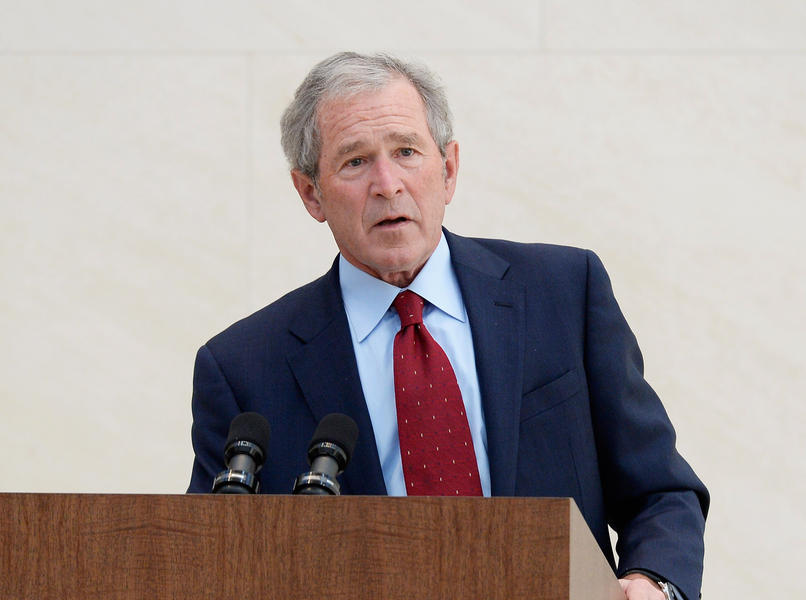Study suggests George W. Bush was a better speaker than President Obama


A free daily email with the biggest news stories of the day – and the best features from TheWeek.com
You are now subscribed
Your newsletter sign-up was successful
A new report from Vocativ shows that the intelligence level of presidential speeches is on a steady decline — and that includes speeches by George W. Bush and President Obama.
Vocativ analyzed more than 600 presidential speeches, from George Washington to President Obama. The researchers used the Flesch-Kincaid readability test, an algorithm that calculates reading comprehension by measuring syllables as well as word and sentence counts. The algorithm assigned each speech a numerical grade from one to 21, based on these three criteria. A grade of four, for example, would mean that the speech could be understood by a fourth-grader, a grade of 12 would make a speech appropriate for high school graduates, and a 21-level speech would be suitable for someone with a PhD.
Notable findings from the study included the fact that George W. Bush's speeches were one grade level above President Obama's. George Bush's State of the Union address on February 2, 2005, for example, earned a grade of 11.6, while a recent State of the Union address from President Obama earned just a 7.5.
The Week
Escape your echo chamber. Get the facts behind the news, plus analysis from multiple perspectives.

Sign up for The Week's Free Newsletters
From our morning news briefing to a weekly Good News Newsletter, get the best of The Week delivered directly to your inbox.
From our morning news briefing to a weekly Good News Newsletter, get the best of The Week delivered directly to your inbox.
The data also revealed long-term trends: The researchers' findings show a steady decrease in presidential speeches' reading comprehension. But according to Jeff Shesol, a former speechwriter for Bill Clinton, that's a good thing.
"It's actually a sign of democratization," Shesol told Vocativ. "In the early Republic, presidents could assume that they were speaking to audiences made up mostly of men like themselves: educated, civic-minded landowners. These, of course, were the only Americans with the right to vote. But over time, the franchise expanded and presidential appeals had to reach a broader audience."
A free daily email with the biggest news stories of the day – and the best features from TheWeek.com
Meghan DeMaria is a staff writer at TheWeek.com. She has previously worked for USA Today and Marie Claire.
